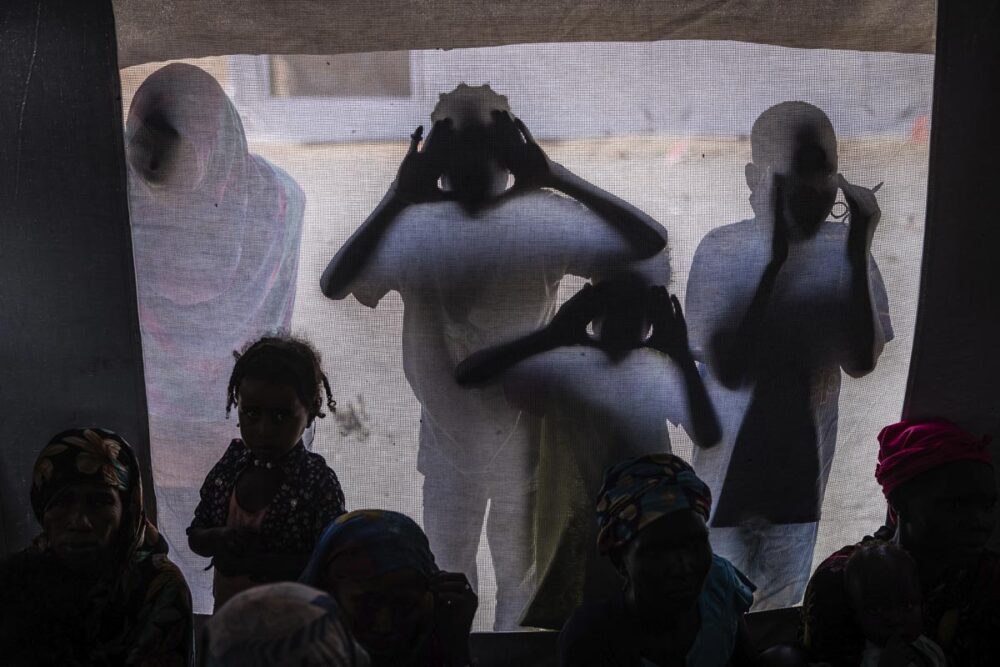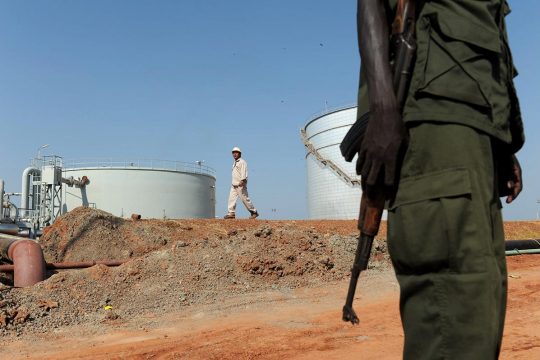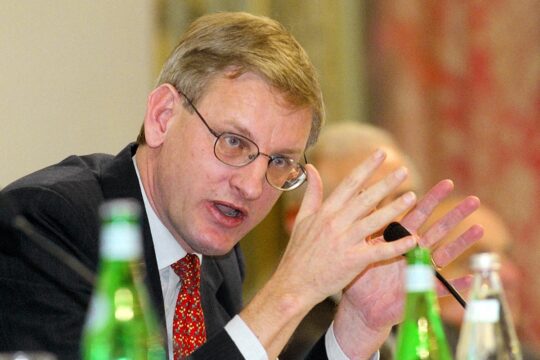The warring parties in South Sudan made ambitious commitments to transitional justice in peace agreements signed in 2015 and 2018. Yet, like the broader peace process, implementation has been fraught with delays as the parties grapple with the technical, political, and financial challenges of launching a complex justice program in a fragile and fragmented state. These challenges underscore a deeper tension between the aspirations of the peace agreements – which aim to not just secure a permanent ceasefire but also tackle the root causes of conflict – and the entrenched political and security realities. Recent cuts in foreign assistance and a reduced diplomatic presence among key bilateral partners have created additional obstacles.
To move forward, South Sudan’s leaders will likely have to muster the political will and resources to advance justice initiatives with limited external support. Though this may seem unlikely to those who view the political class as driven solely by self-interest, recent history suggests that South Sudanese have the capacity to promote dialogue, reconciliation, and accountability even in the face of public skepticism. The recent enactment of legislation for a truth commission and reparations authority presents an opportunity in this regard, both as a short-term response to the current political crisis as well as a longer-term state and nation-building initiative.
Why transitional justice matters
Despite South Sudan’s long history of war, past peace agreements, including the 2005 Comprehensive Peace Agreement (CPA), were conspicuously silent on the question of justice for past abuses. With the establishment of the Government of Southern Sudan in 2005, the ruling Sudan People’s Liberation Movement (SPLM) made a deliberate decision to shelve discussions on justice and reconciliation and to focus on the possibility of secession through a referendum on self-determination scheduled for 2011. When a civil war erupted in 2013, just two years after South Sudan’s independence, these calculations shifted, and South Sudanese became increasingly aware of the role that unaddressed grievances and impunity have played in fueling cycles of violence. Peace processes in South Sudan reflect a recurring pattern in which warlords are rewarded with political and military appointments only to be later replaced by new rebels. These cycles create perverse incentives in that aspiring politicians view violence as a legitimate path towards political power and influence. This in turn signals to communities that the only way to ensure protection or gain influence is through force, thereby undermining the rule of law and eroding public trust in the state.
To break these cycles, the 2015 and 2018 peace agreements included commitments to establish three key institutions: a Commission on Truth, Reconciliation and Healing (CTRH), a Compensation and Reparations Authority (CRA), and a Hybrid Court for South Sudan (HCSS). Progress has been slow, especially given that many of the leaders implicated in wartime abuses remain in positions of power and have little incentive to promote accountability. Nevertheless, in November 2024, the transitional government made a significant step forward when it enacted legislation for the CTRH and CRA. While establishment of the Hybrid Court remains stalled, with the government and the African Union each blaming the other for inaction, the Ministry of Justice is proceeding with the selection process for the CTRH and CRA leadership, and the two institutions could become operational in the near future.
Overview of the Truth commission and reparations law
In many respects, the CTRH and CRA reflect a familiar approach to transitional justice in a post-conflict environment. The CTRH is planned to be led by seven commissioners – four South Sudanese identified by a selection panel with representation from various civic stakeholder groups and three non-South Sudanese to be appointed through a process led by the African Union. Its mandate is to investigate and report on human rights violations, war crimes, and abuses, and to recommend remedies for victims. Although the legislation is silent on the specific time period covered, the 2018 peace agreement implies a focus on abuses committed between July 2005, when the Government of Southern Sudan was established, and the signing of the revitalized peace agreement in September 2018. The CTRH stands out for its unusually long operational mandate of six years, renewable once. While this provision received pushback from some civil society groups who felt it would be difficult to retain the public’s attention and confidence over such a long time period, the government maintained that it had settled on the longer timeframe as a response to other truth commissions that have struggled to fulfill their mandates over the three to four years that truth commissions typically operate.
The Commission is also authorized to recommend amnesty for perpetrators who fully disclose their crimes, although this excludes international crimes such as genocide, war crimes, crimes against humanity, and serious crimes under South Sudanese law, such as murder, and rape. Parliament included crimes under national law among the exclusions to the amnesty after the final public hearing on the bills in response to concerns from civil society that prosecution through national courts present the only viable means of securing justice in the current context and survivors should not be denied that right. While the amnesty provision is sufficiently narrow to comply with international norms on accountability for serious crimes, it remains to be seen how it will be applied in practice.
The CRA is tasked with administering reparations – monetary and non-monetary, individual and collective – to victims of conflict-related abuses. While the applicable time frame for eligibility remains unclear, references in the peace agreement suggest a focus on harms committed between 2013 and 2018. The CRA would be overseen by a board comprising government and civic stakeholders, with cases referred by victims or by the CTRH. One contentious issue is its apparent bias toward communal reparations, with individual reparations permitted only when group-based approaches are deemed inappropriate – an approach that has drawn criticism from civil society and survivor groups. Clarifying such policy ambiguities will be essential for the CRA to gain legitimacy and public trust.
Funding for the reparations program and the broader transitional justice initiative also remains an open question. Civil society groups have called for the government to place a portion of oil and non-oil revenue in escrow to be used for financing of these initiatives, and for this to be supplemented by the seizure of assets from individual found responsible for conflict-related crimes, provided that their assets were acquired through corruption or other illicit activities. However, the prospects for that happening in the short-term, considering the prevailing economic crisis and many competing priorities for public financing, are slim. Some organizations have suggested innovative approaches, such as urgent interim reparative measures, that may bridge the gap in the short-term as the CRA develops plans for the more substantial reparations program.
Is a South Sudanese-led process feasible?
Skepticism about the feasibility of transitional justice in South Sudan remains high. Many analysts question whether meaningful justice is possible in a country where civil servants often go unpaid, high levels of insecurity persist, and political elites routinely undermine reform. Some view the transitional justice agenda as a performative gesture, meant to placate international observers while violence and repression continue unchecked.
While these critiques are valid, there are also several recent examples that paint a less pessimistic picture. For example, from 2017 and 2020, the government of South Sudan engaged nearly 20,000 citizens in a National Dialogue that sought to identify the drivers of conflict in the country and possible solutions. Despite limited international funding, the initiative enabled frank discussions, with many participants openly criticizing the political leadership and calling for President Salva Kiir and First Vice-President Riek Machar to step aside in elections at the end of the transitional period.
Another example relates to military court martials that have been held in various locations across South Sudan in recent years. After establishing an important precedent by prosecuting a group of soldiers for abuses committed against South Sudanese and foreign aid workers at the Terrain Hotel in Juba in 2016, the military proceeded to convene another series of court martials in Yei (southern South Sudan) in 2020, 2022 and 2023. These were followed by other trials in places such as Bentiu (northern South Sudan) and Maridi (southern South Sudan). Though flawed in some respects, including a focus on lower-ranking military personnel and concerns about victim and witness protection, these trials mark some of the first instances of soldiers being prosecuted domestically for conflict-related crimes.
Cautious optimism
The transitional justice mechanisms could also provide a more immediate response to the current political crisis in South Sudan. In March 2025, the Government of South Sudan arrested First Vice-President Riek Machar and other opposition leaders amid clashes between government and opposition forces in Upper Nile, Western Equatoria and Western Bahr-el-Ghazal. Among the challenges in addressing the situation is the lack of a high-level statesperson with the stature and influence to convene the parties in dialogue. The CTRH, which is to be led by a group of eminent personalities from South Sudan and elsewhere in Africa, could serve this role by providing a moral anchor in an otherwise polarized landscape, fostering national dialogue, deescalating tensions, and helping to chart a path toward elections. The credible and transparent launching of the CTRH and CRA could also help to restore public confidence in the peace process, as many South Sudanese have grown disillusioned by repeated delays, broken promises, and the exclusion of victims’ voices from national discourse.
Transitional justice is never easy. There is often a high degree of continuity between wartime and post-conflict regimes and political incentives rarely align perfectly with the moral imperative to address past abuses. No single process, whether a truth commission, reparations scheme, or special court, can by itself transform a country’s political culture. Still, these mechanisms are among the few tools available to confront a violent past and begin building a more just future. Indeed, in South Sudan’s case, declining donor engagement may force a necessary shift toward a transitional justice process that is led and owned by South Sudanese themselves. The government’s decision to enact legislation for two of the three institutions outlined in the peace agreement is a sign of progress. While some skepticism is warranted, there is also reason to believe that domestic actors can chart a path forward if they are given the necessary support. Human rights advocates should meet this moment with cautious optimism. By engaging constructively with the emerging institutions and pushing for inclusive and credible processes, we can help to nudge South Sudan off the course of conflict and war and towards a more just and equitable future.

DAVID K. DENG
David Deng is a human rights lawyer who has been conducting research and advocacy in South Sudan since 2008. Deng’s work has touched on a range of issues, including citizen perspectives on peace processes and transitional justice, land rights, and local approaches security and justice provision.







